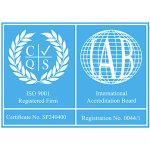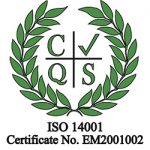Smith’s providing comfort for the built environment
The Company
Formed in 1991 Smith’s Environmental Products has grown to become the leading supplier of domestic and light commercial fan-assisted hydronic heat emitters. The complete product range is manufactured in-house in its specialist facilities in the UK. The company is the UK’s market leader and has significant shares of both the North American and European markets. Smith’s Environmental Products is a member of The Swan Group.
Early on we developed the Smith’s Space Saver, the UK’s number one plinth heater and the business quickly became established in heating & plumbing. Other fan convectors followed and the very first Caspian commercial fan convector was launched in 2007.
Our ambitions have never been modest. The business has grown from strength to strength and today we offer versatile heating solutions based on fan convector technology to all commercial specifiers from architects and consultants, to major building engineering services companies. Our range of Caspian commercial fan convectors can provide products for virtually every heating scenario, with the Smith’s high quality and service excellence people have come to expect.
Our extensive range of heating/cooling products includes Aegean Fan Coils which have been certified and approved by BSRIA. They provide an excellent solution to heating and cooling for all kinds of commercial applications, from restaurants and hotels to office developments, with the ability to rapidly heat and cool large areas with much greater efficiency than other similar heating and cooling systems. In recent months we have launched a new Unit heater, Solano, which is suitable to heat larger open spaces such as production areas, workshops, car showrooms and agricultural premises. We have also recently launched a new range of commercial air curtains called Ostro. They are suitable for use at the entrance to shops, leisure facilities, hotels, schools, hospitals and most other public buildings.
We have a dedicated R&D team who work closely with customers and suppliers alike to develop innovative heating and cooling solutions. In 2020 we launched a Smart Control system for our range of Caspian fan convectors. Smart Control integrates several of the most commonly sought-after control features into one control unit and more. At the basic level it offers room temperature control and additionally offers a range of time controlling features too, making it perfect for buildings that serve a varied community demand.
We continue to develop our product range to improve the performance and environmental credentials of our products. We work with BSRIA who certify and approve our products.
Manufacturing Facilities
Operating from 40,000 square feet of factory and office space near Chelmsford in Essex we manufacture our product range from raw materials through to finished product utilising computerised design and automated production techniques. We are happy to welcome customers to visit our factory and Head Office to demonstrate our capabilities. We have our own painting facility with 3 booths so are able to paint our products any colour, as well as paint our Caspian fan convectors in an anti-bacterial paint finish.
Throughout our company we have initiatives to improve our productivity and quality. Lean initiatives such as Kaizen, or continuous improvement process, have brought significant improvements in the factory. Ongoing initiatives such as the implementation of the gemba walk continue drive innovation and to maximize the improvement process.
Quality and the environment
At Smith’s we recognise that quality is about more than just the product, it’s an approach that runs throughout the business and is centred on meeting and exceeding customers’ expectations. Processes are constantly monitored and evaluated with a focus on continuous improvement. Manufacturing facilities are regularly appraised and meet the exacting standards of national approval boards such as UL, CSA and Kema.
As part of our commitment to both quality and the environment we hold both ISO 9001(2015) and ISO 14001 certification. ISO 9001 (2015) is the recognised standard for quality.
ISO 14001 is concerned with setting an environmental framework for the company to work within. This means that Smith’s has management processes and systems to ensure that they manufacture products that meet the customer and regulatory requirements and are working within designated environmental parameters.
Both ISO 9001 (2015) and ISO 14001 accreditations are internationally recognised and demonstrate that Smith’s is a responsible and forward-thinking organisation committed to achieving and maintaining the highest organisational standards.
Achilles Building Confidence Scheme
Smith’s has achieved membership of the Achilles Building Confidence Scheme following a successful audit. The scheme is designed to give confidence to suppliers in the construction industry that members have achieved the required standard in terms of production quality, health and safety standards, training and development, environmental procedures and processes as well as Corporate Social Responsibility. Membership of this scheme is a requirement of many of the major Main Contractors and suppliers in Construction Industry Supply Chain. Certificate
Working with Renewables
Renewable technology grows apace, with ground source and air source heat pumps offering a viable alternative to boilers as the principal heat generator in both domestic and commercial applications.
Inherent in the heat pump’s design is that the smaller the temperature between the heat-source pump (air or ground) and the heat sink/emitter (under-floor heating, fan convector, radiator), the higher the energy efficiency of that heat pump. This higher efficiency means lower fuel bills and greater carbon savings.
Fan convectors can work very effectively at system temperatures as low as 40°C. This allows your chosen heat pump to work close to its maximum levels of efficiency, which means it will reduce the user’s energy costs and energy consumption in the way it was intended. By contrast a standard radiator is designed to be efficient at higher temperatures, 45°C and above, which automatically reduces the heat pump’s efficiency by more than 10%. In addition the size of the radiator has to be increased significantly to cope with the lower system temperatures.


